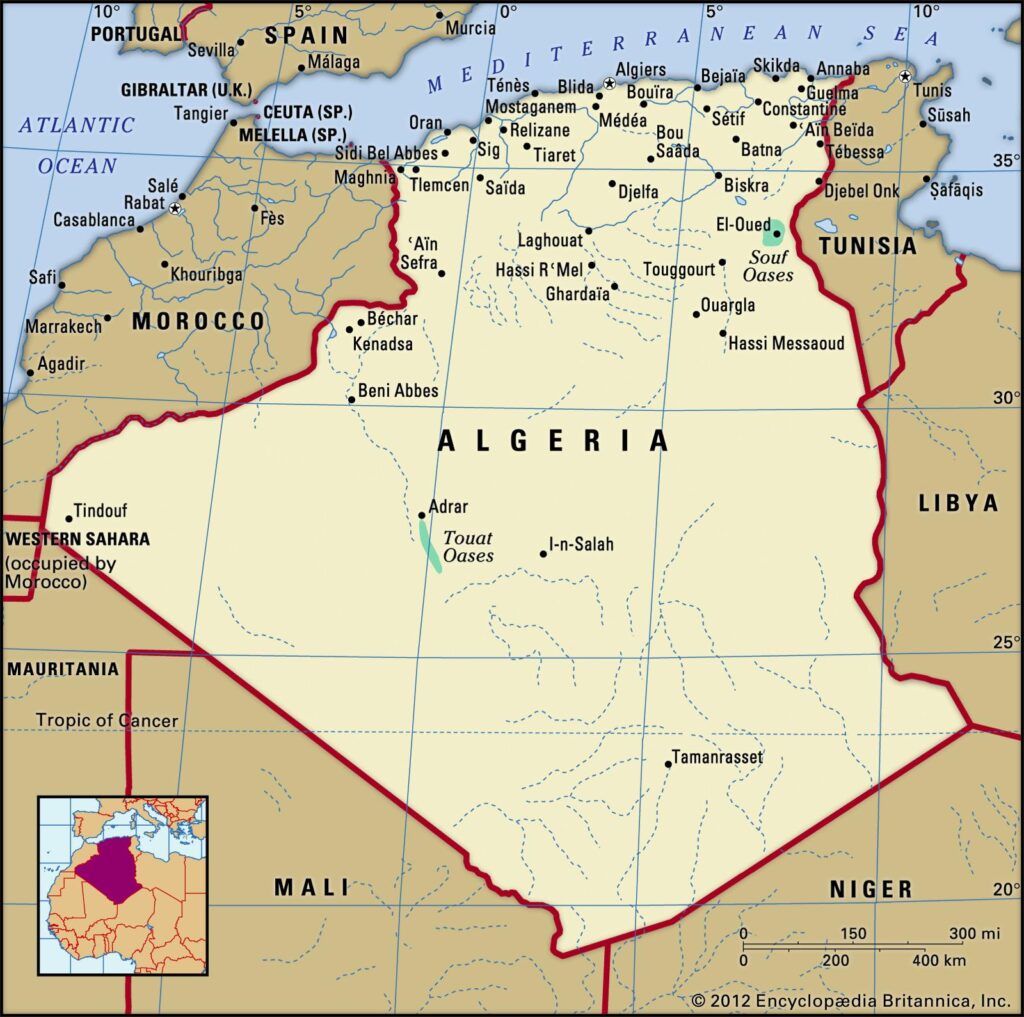Algeria has suspended all flights from Mali following escalating tensions over a recent drone incident, marking a significant development in the strained relations between the two neighboring countries. The move comes after Algeria accused Mali of unauthorized drone flights near its airspace, prompting officials to take decisive action amid growing security concerns in the region. This flight ban underscores the fragile state of diplomatic and security cooperation in West Africa, where both nations play key roles in addressing ongoing instability.
Algeria and Mali Diplomatic Tensions Escalate Following Drone Incident
Algeria’s sudden ban on Malian flights marks a sharp escalation in diplomatic tensions after a reported drone incident near their shared border. Algerian authorities have accused Mali of failing to control drone activities that endangered national security, prompting them to close airspace to all Malian carriers indefinitely. This move disrupts key regional air routes and complicates Mali’s connectivity with North Africa and Europe, impacting both passenger travel and cargo transport.
The fallout has sparked concerns across regional organizations, with the African Union and ECOWAS urging calm and dialogue. Key points surrounding the incident include:
- Drone Sighting Location: Near the Tamanrasset border post
- Date Reported: Late April 2024
- Airspace Impact: Suspension of all Mali-origin flights into Algeria
- Economic Effects: Disruption to trade and increased travel costs
- Diplomatic Response: Calls for investigation and mediation
| Aspect | Algeria’s Position | Mali’s Response |
|---|---|---|
| Security Threat | Drone intrusion threatens borders | Denies intentional breach |
| Flight Restrictions | Full ban on Malian flights | Seeks urgent reversal |
| Diplomatic Talks | Calls for investigation | Invites dialogue |
Impact of Flight Suspensions on Regional Connectivity and Trade
The recent suspension of flights between Algeria and Mali has sent immediate shockwaves through the region’s already fragile transport network. These air travel bans not only disrupt the movement of passengers but severely limit the flow of goods, impacting trade routes that are pivotal for both economies. Air cargo, often relied upon for perishable goods, urgent shipments, and high-value products, now faces delays and rerouting challenges, pushing businesses to seek alternative, often less efficient, pathways.
Key consequences include:
- Increased transportation costs: Businesses must rely on longer land or sea routes, which are more expensive and time-consuming.
- Supply chain disruptions: Delay in essential commodities and trade goods affects market stability and local availability.
- Reduced business confidence: Investors and traders reconsider engagements due to unstable connectivity.
| Sector | Impact Level | Primary Challenges |
|---|---|---|
| Agriculture | High | Export delays, perishability concerns |
| Manufacturing | Medium | Parts supply interruptions |
| Tourism | High | Decline in arrivals, cancellations |
Steps Toward Conflict Resolution and Ensuring Airspace Security in West Africa
In addressing the growing tensions that have culminated in airspace restrictions, regional authorities must prioritize diplomatic engagement and multilateral cooperation. Open dialogue between Mali, Algeria, and neighboring states forms the foundation for restoring trust and transparency. Establishing joint airspace monitoring mechanisms and intelligence-sharing frameworks can effectively mitigate misunderstandings surrounding military drone activities, which have emerged as a significant point of contention. Crucially, these efforts require the involvement of regional organizations such as ECOWAS and the African Union, facilitating mediation and creating neutral platforms where grievances can be aired and resolved.
Alongside diplomacy, enhancing airspace security infrastructure will be vital in preventing future conflicts and ensuring safer skies. This includes:
- Implementing state-of-the-art radar and surveillance technologies
- Standardizing flight protocols across borders to eliminate ambiguities
- Training joint security forces for coordinated responses to aerial threats
| Step | Action | Expected Outcome |
|---|---|---|
| 1 | High-level diplomatic talks | De-escalation of tensions |
| 2 | Airspace surveillance upgrades | Improved threat detection |
| 3 | Regional security protocol development | Coordinated incident response |
Wrapping Up
The decision by Algeria to suspend flights from Mali underscores the escalating tensions between the two neighboring countries amid ongoing security concerns. As both nations navigate the complex dynamics of regional stability and counterterrorism efforts, the situation remains fluid. Observers will be closely watching for further developments that could impact diplomatic relations and the broader Sahel region’s security landscape.
